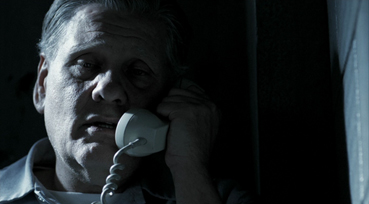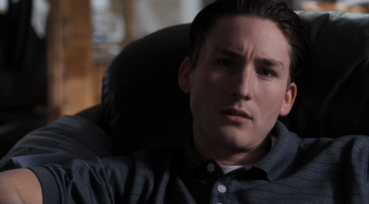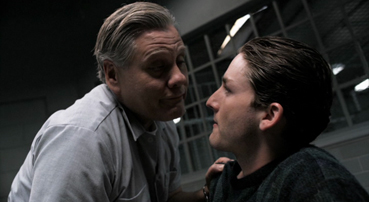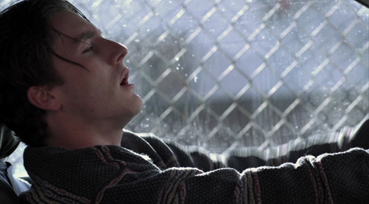|
What is it about serial killers that we seem to find so fascinating? I'm not attempting to climb onto moral high ground here, as I'm probably guiltier than most – peruse my bookshelves and you'll find a number of books on real-life mass murderers, all bought and read long before the recent rise in popularity of the serial killer movie. And for the record, I'm neither qualified to psychoanalyse the reasons, nor am I interested in hearing what someone who is would make of that little corner of my literary collection.
In movies at least, serial killers are wily bastards who are able to outwit even the smartest lawmen. A taste for art, literature and high culture is optional, but inevitably adds to their dark allure. Of course, the thing about the more notorious serial killers is that they did indeed evade the investigating authorities for long enough to build themselves a reputation. Some – the famed Zodiac killer and Jack the Ripper included – were never caught, and those who did became the subject of detailed study and media interest, at least until their own state-sanctioned deaths. This has elevated a select few to celebrity status and granted them membership of a very specific (and largely American) Hall of Fame, one whose ranking is based on the brutality, volume and newsworthiness of their crimes.

It's thus no surprise that a serial killer who exists only in novels and movies has become something of a household name. A supporting player in Thomas Harris's 1981 novel Red Dragon, he was moved front and centre in Harris's follow-up, The Silence of the Lambs, the film of which brought this rapidly evolving horror sub-genre smack into the mainstream and won its leading man an Oscar and a legion of admiring female fans. There's just one thing – the ladies in question weren't swooning for Anthony Hopkins but Hannibal Lector, a violent and merciless killer who consumed his victims. Of course we didn't see too much of that in the film. What we saw was the enigmatic, cultured and curiously charming man, a killer humanised through the bond he forms with good-hearted young FBI trainee Clarice Starling, whose attempts to manipulate this master manipulator quickly blow up in her face. A great story it may have been, but it couldn't happen in real life. Could it?
Back in 1993, 18-year-old Nevada University student Jason Moss proposed writing his criminology class paper on imprisoned serial killer John Wayne Gacy, his stated intention being to get inside the head of this famed multiple murderer. In pursuit of this aim, he began corresponding with Gacy by playing on his attraction to innocent and emotionally vulnerable teenage boys. Convinced that he could exploit him to his own ends, Jason quickly found himself out of his depth and the object of obsession for a dangerous and manipulative psychopath. And yes, this really happened. It's effect on Jason was profound and long-lasting. In 1999 he collaborated with Jeffrey Kottler a book recounting his experiences and went on to become a successful criminal defence attorney. In 2006 at just 31 years of age, he took his own life.
The Last Victim takes its title from Jason's book and carries more meaningful weight than the original Dear Mr. Gacy, though I'm guessing the title change was actually prompted by concerns that a UK audience wouldn't know who John Wayne Gacy was. That's a fair enough assumption given that we tend to be a little parochial about our serial killers – I seriously doubt Fred West and Harold Shipman are as well known in the States as they are in the UK. For those new to Gacy, know that in December 1978 he was arrested and eventually charged with the rape and murder of thirty-three boys between the ages of 14 and 21, twenty-six of whom were found buried in the crawlspace beneath his house. He was found guilty on all counts and sentenced to death, and on the morning of 9th May 1994 was executed by lethal injection. Due to his previous work as a clown for children's parties and charitable events, the media dubbed him The Killer Clown.

The Last Victim is Moss's story in much the same way that Silence of the Lambs is Clarice Starling's, and the similarities go beyond those of the developing central relationship. The film (and I confess to not yet having read the book on which it is based) charts Jason's relationship with Gacy, from the first flicker of interest in making him the subject of his paper to the post-execution presentation of his work to his peers, by when Gacy had left an indelible mark, one that provided the title of his book and this film.
That Jason comes across as foolishly naïve in his early dealings with Gacy is as much down to our own perception of the threat posed even by imprisoned movie serial killers as it is to Jason's underestimation of the object of his intended research. He is cocksure rather than arrogant, an overachiever who genuinely believes his stated claim that he can get inside Gacy's head and have him eating out of his hand, words that we know he will be given opportunity to eat. Ambition and boyish enthusiasm initially cloud his judgement, and when Gacy responds to his first letter, his confidence grows, prompting him to up the game by accompanying the next with suggestive photos of himself and the inference that he is open to sexual experimentation. Gacy takes the bait and soon the two are corresponding regularly. Then early one morning Jason gets a phone call from Gacy's cell...
Whether the effects of Gacy's subsequent psychological manipulation of Jason are true to what actually took place is open to speculative debate, but it definitely makes for involving psychodrama. The content of the letters from both parties has undergone some subtle manipulation to crank up the creepier aspects of the correspondence and to more quickly illustrate that Jason is out of his depth.* Whether Gacy really was able to mess with Jason's head severely enough to unleash the boy's inner violence, which manifests itself here in his attempt to assault a prostitute and the vicious beating he dishes out to the boy who is bullying his younger brother, is questionable. What the film does chillingly capture is the psychological reach Gacy was able to exert once his communication with Jason shifted from letters to phone calls. Rarely has the telephone felt so threatening and invasive, providing the verbally eloquent Gacy with direct access to the darker recesses of Jason's psyche, souring his relationship with his family and his girlfriend Alyssa and rattling him to the degree that just the ring of the phone is enough to get him twitching.

And with good reason. As played by William Forsythe (a specialist in tough guy roles, although he's fondly remembered here for his comical turn as John Goodman's sidekick in Raising Arizona), Gacy is presented as a physically and vocally intimidating man, one whose growling voice, threatening bulk and sudden explosions of anger give disturbing credence to his suggestion that he has an influence and reach beyond the confines of his cell. There is a slight theatricality to Forsythe's portrayal and a sense that the character has been shaped as much by the film incarnations of Hannibal Lector as the real-life Gacy, but this is still a compelling performance, one of calm surface restraint whose undertow of violence can erupt with startling suddenness. So effectively communicated is the threat he represents that we can't help but share Jason's panic when he finally meets his co-respondent and is left alone with him in his cell, the guards being more interested in whether their coffee has cream than the fate of a boy they assume is there for the condemned Gacy's sexual amusement.
There's something a little uncanny about the fact that, despite being no relation, actor Jesse Moss bears a distinct facial resemblance to his namesake Jason. In some ways the actor Moss has an even tougher task than Forsythe, bounced as he is through a range of teenage emotional extremes that will be familiar from any number of American film and television works of recent years. But again this is a performance of impressive restraint and conviction, one that sells Jason's moral and emotional breakdown and makes it easy for us to wince at his naïvety but still fear for his safety, a duality of engagement that continues right up to and during his tense climactic meeting with the man himself.
This unsensational approach to performance is reflected in director Svetozar Ristovski's handling, which for the most part adopts a quietly but effectively observational approach, with the expected flashbacks to the original murders restricted to recollections and a brief post-drug dream (this hasn't stopped the publicity from feeding off them, of course). The current trend for shooting even traditionally locked-down shots with a touch of hand-held wobble is kept under tight control, and coupled with the toned-down colour scheme and a fondness for shadow, works well for the film's dark tone and moral edginess.

The Last Victim won't work for everyone, particularly in its focus on the psychological over the visceral.** But see it for what it is intended to be, a study of the corruption of innocence, the infectious nature of evil and the destructive consequences of unlocking the dark corners of the soul, and it really delivers. There was once a time when North American TV movies were generally regarded as inferior to their theatrical brethren, but the success of cable channels like HBO have allowed them to walk into previously forbidden territory, dispensing with former restrictions on content and language and increasingly blurring the line between films created for broadcast and theatrical release. The Last Victim is very much a product of this relatively new freedom, and despite the lack of explicit violence is distinctly adult in its language and content, but never gratuitously so. It plays small games with the facts to tell an essentially true story, but shines in the tension of its central relationship, in Ristovski's low-key handling, and in two very fine lead performances. It may not provide a window into Gacy's thinking or deliver on the trailer's promise of psychological terror, but it makes for consistently involving and unsettling drama, and in its own quiet way shows that you don't have to shout at an audience to burrow disquietingly under their skin.
A clean, well-balanced 1.78:1 anamorphic transfer whose toned-down colour scheme and use of low light and shadow can give the impression of slight picture softness in places, but the best material displays a good level of detail. The contrast is solid even in the darker scenes – there is some burnout on a couple of the highlights, suggesting the film may have been shot on digital rather than film.
There's a choice between Dolby 2.0 stereo and Dolby 5.1 surround soundtracks, but apart from some elements of Terry Frewer's atmospheric score, both are essentially stereo tracks with little or nothing happening at the rear on the surround. The 5.1 has a little more finesse than the stereo and considerably more bass on the diegetic music playing in the gay bar in which Jason does his research.
The Gacy Files: Portrait of a Serial Killer (21:22)
Lead actor William Forsythe interviews key members of the team involved in bringing Gacy to justice and chats with one of his childhood friends, as well as The Last Victim co-author Jeffrey Kottler. Although largely comprised of talking heads intercut with brief extracts from the film, it's fascinating stuff, but feels disjointed and incomplete, like highlights from a longer and more detailed documentary, which it apparently is not.
There's also the Original Teaser Trailer (1:27) and the Original Theatrical Trailer (2:24), both under the original title of Dear Mr. Gacy. They're persuasive sells, if a little deceiving about the film's tone and pace.
A well made, impressively performed and appropriately suspenseful psychological drama that takes its characters to dark places, but with a restraint and attention to character that some of its big-screen cousins could learn from. This Anchor Bay DVD is a direct port of their earlier US release, complete with its limited (though still interesting) extra features. Try not to be swayed by the promise of a Silence of the Lambs-style horror thriller, despite some structural similarities, and give it a look – it might surprise you.
* Changes made include the wording of the letters and the content of Gacy's questionnaire, which in real-life arrived with a covering letter, something the filmmakers have omitted, presumably to emphasise Jason's bemusement at the questionnaire's purpose. The most significant omission, which was doubtless made to focus the drama on his relationship with Gacy, is that Jason also corresponded with a number of other renowned and imprisoned serial killers, including Jeffrey Dahmer, Charles Manson, Richard Ramirez and Henry Lee Lucas, though it was with Gacy that he developed the strongest bond.
** If you're looking for a film that explores Gacy's serial killer years then check out the 1992 TV movie To Catch a Killer, in which Gacy is played by Brian Dennehy (who was nominated for an Emmy for his performance) or, at a pinch, the 2003 direct-to-video feature Gacy featuring Mark Holton in the title role.
|